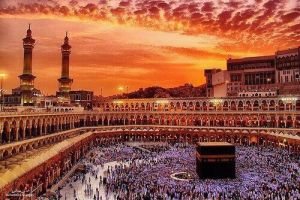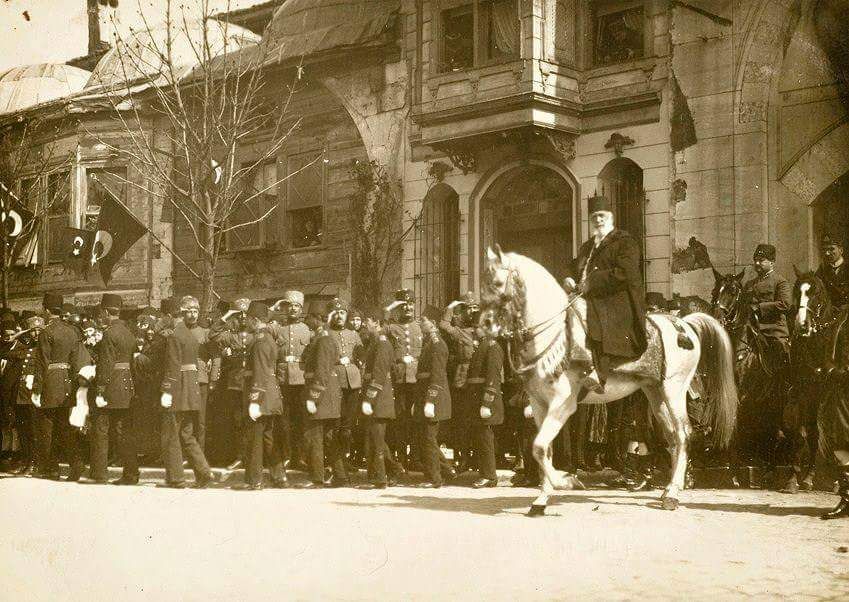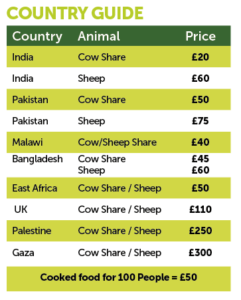By Khalid Baig – (From the book ‘First Things First’)

The article below is adapted from two talks of Mufti Muhammad Shafi (Allah have mercy on him) given in 1963 and published in the booklet Wahdat e Ummat.
“I gave a lot of thought to the causes of the sorry state of the Ummah, during the years of captivity in Malta,” said Shaykh-ul-Hind Mawlana Mahmoodul Hassan (Allah have mercy upon him). It was 1920, and at 69 not only was he one of the most distinguished scholars of his time, he had also spent a lifetime in political struggle. His audience was a gathering of Ulama, eager to hear the lessons of a lifetime of study, struggle and reflection. His conclusion: “Our problems are caused by two factors; abandoning the Qur’an and our infighting.” He spent the few remaining days of his life addressing these causes.
The reasons Shaykhul Hind (Allah have mercy upon him) stated are as valid today as they were then. They are also related; the second being caused by the first. The Qur’an had declared us as one Ummah and had warned us against infighting. We have ignored those teachings and the billion-strong Ummah has turned into an Ummah fragmented into a billion segments.
A very large number of our internal battles are the result of narrowly defined self-interest. Islam could have been the force that helped us overcome that. Unfortunately, instead of letting it fulfil that role, today we have made even religion provide us with additional and irresolvable points of conflict. We fight over petty issues of fiqh. We fight over fine points of religious interpretation. We turn minor points of religious law into big battlegrounds while most important and fundamental teachings of religion are violated.
We all do this even as this religion has been under attack from all directions. Thousands of people become apostates every year in Pakistan. Qadianis (who declare Mirza Ghulam Ahmed of Qadian to be a prophet), and munkireen e hadith have been busy attracting our new generation to their falsehoods. Haram is being declared as Halal. Our masses are ignorant of their religion and easily indulge in customs borrowed from polytheists. On top of all that is the western culture of hedonism, of shamelessness, of moral anarchy, that is invading our societies through film, television, radio and obscene literature.[And we might add now the internet.] Corruption of all sorts has permeated all layers of our society. Should not we be reflecting on this and asking ourselves what would the Prophet (peace and blessing be upon him) expect of us, the heirs of the Prophets? In the hereafter shall we be able to give a sufficient answer by mentioning that we wrote a book on rafa-yadain (the issue of raising hands during certain movements in obligatory prayer)?
Once I saw Mawlana Anwar Shah Kashmiri (Allah have mercy upon him) in a very sad mood. What is the matter? I asked. “I have wasted my whole life,” he said. “You have spent your entire life in spreading Islamic teachings. Thousands of your disciples are themselves Ulama who are serving the religion. If that is a waste, what hope can anyone else have?” I insisted. “Look, what has been the main thrust of all our efforts,” he replied. “It has been to show why Hanafi school is better than others. Imam Abu Hanifa (Allah have mercy upon him) did not need this. His grandeur did not need our approval. Imam Shafi’ee (Allah have mercy upon him), Imam Malik (Allah have mercy upon him) and Imam Ahmad ibn Hanbal (Allah have mercy upon him) could not care less about it. All that one can ever prove in these matters is that a certain position is right but has the probability of being wrong and the other position is wrong but has the probability of being right. Moreover, these issues will not be resolved even in the hereafter. For Allah (be He glorified) will not humiliate Imam Abu Hanifa, Imam Shafi’ee, Imam Malik or Imam Ahmad ibn Hanbal by showing that they were in error.” Then he added: “Today when the roots of Islam are under attack, we have been busy taking care of the leaves.”
It is not that debates or disagreements in religious interpretation are themselves evil. Today, many western educated Muslims, with scant understanding of their religion do think that way. Some even suggest that we should bury all fiqhi schools and create a new one. This is neither possible nor desirable. Difference of opinion are inevitable wherever people have both intellect and honesty. Complete consensus on every issue is only possible when everyone is dumb, so they cannot think of a different idea, or they are dishonest so they willingly agree with a position they consider wrong. After all religious interpretations are not so personal rights that can be sacrificed away.
The problem rather occurs when we overstate these differences. There were difference of opinions in Fiqh amongst the companions, the Successors and great Mujtahideen. They disagreed but did they not turn these into fights. They disagreed but they maintained respect and love for each other.
The brotherhood remained intact.
They had tolerance for the other view.
How can we have tolerance for something we know is wrong? Of course we cannot have any tolerance for anything clearly established as wrong by the Qur’an or Hadith. We can never show accommodation for apostasy. We can never agree on changing the Shariah’s established definitions of halal and haram. But beyond this there are issues about which the Qur’an and Sunnah are silent or are subject to more than one interpretation.
Here the Mujtahideen deduce the intent of the Qur’an and Sunnah based on their based ability. Here disagreements are possible. As long as those involved are qualified Mujtahideen (like the four respected Imams), their differing views have to be respected. We can follow only one opinion, and we should try and determine the one closest to the intent of the Shariah, but we cannot declare opposing views as evil. We exaggerate when we deal with people holding valid opposing views as if they were outside the bounds of Islam.
Overstatement (ghuloo) is the main cause of most fights involving our religious groups. It also happens with Islamic organizations. Most are doing useful work in the areas they have chosen based on their abilities and inclinations. Had they developed a spirit of cooperation and considered their differences as just a natural division of labour, together they could have become a formidable force. Unfortunately, each one of them considers their work and methodology as the only methodology for Islamic work. If a person leaves one of these organizations to join another, he is treated as if he recanted his faith. This is ghuloo. It produces the tribalism of Jahiliya (the pre-Islamic period of ignorance) among religious workers.
Pious people are not extinct today. What we sorely need are the reformers who can rise above their narrow perspectives and heed the universal and unifying call of Islam
The ship and the lifeboats (This section contains Khalid Baig’s reflections on the above).
The above comments of Mufti Muhammad Shafi (Allah have mercy upon him) regarding ghuloo (overstatement) and tribalism in Islamic workers need to be understood in light of Muslim experience with colonialism and its aftermath. Colonialism had hit them hard. It subjugated them physically, politically, economically, culturally and mentally. It was like a big crash in which their ship was destroyed. In the immediate aftermath, survival was the main goal, and people came with whatever lifeboats they could. After the formal ending of direct colonial rule after decades of struggle, there was the time to pick up the pieces and build the ship again. The problem is they had been living in the lifeboats for so long, they confused them with the ships. They still do.
The schools for secular education were one such lifeboat. They imparted some skills necessary for survival in a changed world, although they impoverished Muslim education and society tremendously in so many ways. But today so many well-meaning people who get excited about spreading education in the Muslim world think of nothing more than establishing more of these same schools. Campaigns for “democracy,” whatever it means, were another such lifeboat, aimed at returning control of Muslim affairs to them thereby seeking liberation. Today, democracy or no democracy, nowhere do Muslims have any control over their affairs, but this lifeboat has become a ship and Khilafah, the Islamic system of governance, remains a strange entity.
Most important, Islamic organizations were such a lifeboat, aimed at gathering likeminded people so they could focus their resources and energies on some of the important things. Islamic teachings encompass our entire life and no private organisation can handle all of them to the exclusion of others. Charity is a big part of Islam and it needs organized efforts. So does Islamic education. And calling to Islam. And amr-bil-maroof-wa-nahee-anil-munkar. And the struggle on the battlefield. And so on. Those engaged in media, political, charitable, or other struggles are all part of the jihad. In the absence of the Khilafah, these are all lifeboats. Yet each of them is considered to be the ship by its occupants and captains, thereby creating new lines of cleavage within the Ummah.
The claim that what an organization is doing is the task that needs to be done and the way it is doing it, is the only Islamically legitimate way of doing it, is as damaging as it is common. It helps recruitment for a particular organization but hurts the overall cause. It may make the riders of the lifeboat feel good, but it pushes further the day when we can build the ship again. Little do we realize that one cannot live forever in the lifeboats.
The attitude also betrays lack of appreciation of the current situation of the Ummah. Since the formal end of colonialism we have been living with its legacies. One of them is an education system that we embraced as a ticket out of our miseries during that period of oppression; it compounded our problems by producing self-doubt and self-hate. It produced generations of perfect strangers within the house of Islam, who were then – for this “acheivement” – given leadership roles in all areas of Muslim societies. They hated their languages, their culture, and their religion. It is such people who rule the Muslim world today.
Simultaneously, a whole gamut of institutions, from sophisticated research centers to slick media, is dedicated to the campaign to sow doubts, to spread confusion, and to denigrate Islam. In hot spot after hot spot around the world, the sword is busy prosecuting a war on Islam. The pen is busy in both conducting a war on Islam and in trying to foment a war within Islam.
With that armada arrayed against it, not only the ship is missing here, but the lifeboats cannot even make a fleet because of their illusion that each of them is not a lifeboat but the ship.
This is not to suggest that the situation is entirely hopeless. For these are also the times when people all over the world are coming to Islam in unprecedented numbers. At a time when Muslims have lost control of the sword and the pen, Islam is finding new followers everywhere everyday. (It is quite revealing that even as Islam continues to spread despite the sword, some people continue to insist that it spread by the sword).
Within the Muslim world there are signs of awakening. Muslims are coming back to Islam after having toyed with one false ideology after another. More women are choosing Hijab and are becoming more assertive about it as a symbol of their Islamic identity. There is a greater interest in Islamic knowledge. Qur’an lectures are attracting crowds that were not seen in the past. The nature of the questions people ask about Islam is also changing. There are more “how to” and “what to” questions than “why” questions coming from the secular educated groups. As a small indicator of the new trend, the Biswa Ijtimas (annual gatherings of Tablighi Jamat in Bangladesh) lately have attracted around two million attendees. What is more, they come from widely varying segments of society. A parallel growth can be seen in Islamic activism. Politics, media, relief and charity, education, and community service are all attracting new workers and new organizations. There is new enthusiasm, new energy, and new awareness.
Can we imagine how much speedier our recovery could be if we rose above our petty perspectives, pooled our resources, and recognised the difference between the lifeboats and the ship?
Allah purify our hearts and unify our souls. Ameen.
 “All of my Ummah will be forgiven except those who sin openly…” [1]
“All of my Ummah will be forgiven except those who sin openly…” [1]



